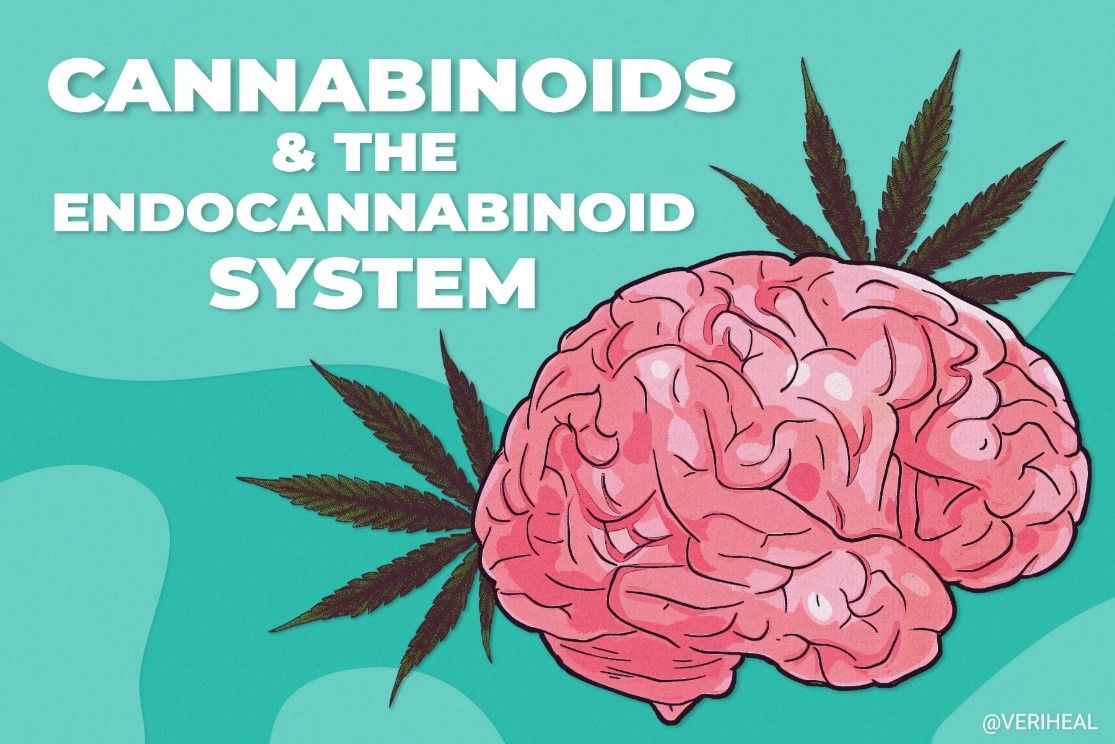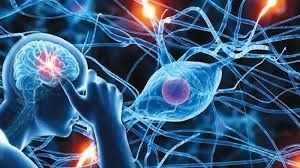Understanding the Endocannabinoid System: A Key Player in Neuromodulation

The human body is a complex network of systems working harmoniously to maintain health and balance. Among these systems, the endocannabinoid system (ECS) is one of the most intriguing, playing a crucial role in regulating a variety of cognitive and emotional processes. While many associate the ECS with cannabis due to the name, its functions extend far beyond the interaction with cannabinoids found in the plant. The ECS is integral to our central nervous system (CNS) and influences behavior, mood, and neurological conditions such as epilepsy.
The Basics of the Endocannabinoid System
The ECS is a neuromodulatory system that is widespread throughout the central nervous system and peripheral tissues. It consists of three core components: endocannabinoids, receptors, and enzymes.
- Endocannabinoids: These are naturally occurring lipid-based neurotransmitters in the body. The two most well-known endocannabinoids are anandamide (AEA) and 2-arachidonoylglycerol (2-AG). These molecules are synthesized on demand and act on specific receptors within the body.
- Receptors: The ECS primarily operates through two receptors—CB1 and CB2. CB1 receptors are predominantly found in the brain and central nervous system, where they play a role in regulating mood, memory, and pain perception. CB2 receptors, on the other hand, are mainly found in the immune system and peripheral tissues, influencing inflammation and immune response.
- Enzymes:
Once endocannabinoids have fulfilled their role, they are broken down by enzymes. The two primary enzymes involved are fatty acid amide hydrolase (FAAH), which degrades anandamide, and monoacylglycerol lipase (MAGL), which breaks down 2-AG.
Cognitive and Emotional Regulation
The ECS is deeply involved in the regulation of various cognitive and emotional processes. This regulation is crucial for maintaining homeostasis—the body's internal balance—which is essential for overall well-being.
Behavior
Behavioral responses are influenced by the ECS through its interaction with neurotransmitters like dopamine, serotonin, and glutamate. The modulation of these neurotransmitters affects everything from learning and memory to reward processing and emotional responses.
- Learning and Memory: The ECS plays a significant role in the formation and retrieval of memories. CB1 receptors in the hippocampus, a region of the brain critical for memory, modulate synaptic plasticity, which is the ability of synapses to strengthen or weaken over time. This modulation is essential for learning and adapting to new information.
- Reward and Motivation:
The ECS is also involved in the brain's reward circuitry, particularly in the release of dopamine, a neurotransmitter associated with pleasure and motivation. This interaction can influence behaviors related to addiction, eating, and motivation.
Mood Disorders
Mood regulation is another critical function of the ECS. Dysregulation of the ECS has been linked to various mood disorders, including anxiety and depression.
- Anxiety: The ECS modulates the release of neurotransmitters that influence anxiety levels. Studies have shown that endocannabinoid signaling can either increase or decrease anxiety, depending on the specific brain region and receptor involved. For instance, activation of CB1 receptors in the amygdala, a brain region associated with fear and stress responses, has been shown to reduce anxiety.
- Depression:
The relationship between the ECS and depression is complex. Research suggests that a deficiency in endocannabinoid signaling may contribute to the development of depressive symptoms. Enhancing endocannabinoid signaling, either through the use of phytocannabinoids (plant-based cannabinoids) or inhibitors of endocannabinoid degradation, has shown potential in alleviating depressive symptoms.

Neurologic Disorders
The ECS's influence extends to neurological disorders, where it plays a role in modulating the severity and progression of conditions like epilepsy and multiple sclerosis.
Epilepsy
Epilepsy is a neurological disorder characterized by recurrent seizures, which are sudden surges of electrical activity in the brain. The ECS has been found to play a significant role in controlling seizure activity.
- Anticonvulsant Properties: The anticonvulsant properties of cannabinoids, particularly cannabidiol (CBD), have been widely studied. CBD does not directly activate CB1 or CB2 receptors but rather modulates the ECS indirectly by inhibiting the degradation of anandamide. This leads to increased levels of anandamide, which can reduce seizure frequency and severity.
- Clinical Evidence:
The FDA-approved drug Epidiolex, which contains purified CBD, is a testament to the ECS's role in managing epilepsy. Clinical trials have demonstrated its efficacy in reducing seizures in patients with treatment-resistant forms of epilepsy, such as Dravet syndrome and Lennox-Gastaut syndrome.
Multiple Sclerosis
Multiple sclerosis (MS) is another neurological disorder where the ECS has shown therapeutic potential. MS is an autoimmune disease that affects the CNS, leading to symptoms like muscle spasticity, pain, and mobility issues.
- Spasticity and Pain Management: The ECS helps regulate muscle tone and pain perception, making it a target for managing MS symptoms. Sativex, an oral spray containing THC and CBD, has been approved in several countries for the treatment of MS-related spasticity and pain. It works by activating CB1 and CB2 receptors, reducing spasticity and improving quality of life for patients.
The Therapeutic Potential of Targeting the ECS
Given its widespread influence on the CNS and its involvement in various cognitive, emotional, and neurological processes, the ECS is a promising target for therapeutic interventions.
Cannabinoid-Based Therapies
Phytocannabinoids, such as THC and CBD, derived from the cannabis plant, are the most well-known compounds that interact with the ECS. However, the therapeutic potential of cannabinoid-based therapies extends beyond these two compounds.
- THC: Tetrahydrocannabinol (THC) is the primary psychoactive compound in cannabis, known for its ability to bind to CB1 receptors in the brain. While it has therapeutic benefits, such as pain relief and appetite stimulation, its psychoactive effects can limit its use, particularly in individuals with a history of mental health disorders.
- CBD: Cannabidiol (CBD) is non-psychoactive and has gained popularity for its potential therapeutic benefits. As mentioned earlier, CBD's anticonvulsant properties have led to the development of Epidiolex, but its benefits extend to other areas, including anxiety, inflammation, and neuroprotection.
- Emerging Cannabinoids:
Other cannabinoids, such as cannabigerol (CBG) and cannabinol (CBN), are gaining attention for their unique interactions with the ECS and potential therapeutic benefits. These emerging cannabinoids could offer new avenues for treatment, particularly in areas where THC and CBD have limited efficacy.
Endocannabinoid System Modulators
In addition to cannabinoid-based therapies, there is growing interest in developing drugs that modulate the ECS itself. These drugs can target the production, release, or degradation of endocannabinoids, offering more precise control over the ECS's activity.
- FAAH Inhibitors: By inhibiting the enzyme FAAH, which breaks down anandamide, researchers can increase anandamide levels in the body. This approach has shown promise in preclinical studies for treating anxiety, pain, and inflammation. However, translating these findings into effective and safe therapies for humans remains a challenge.
- MAGL Inhibitors: Similarly, inhibiting the enzyme MAGL increases levels of 2-AG, another key endocannabinoid. This strategy is being explored for its potential to treat conditions such as neurodegenerative diseases and chronic pain.

The Future of ECS Research and Therapy
As our understanding of the ECS deepens, so too does the potential for new therapies that harness its power to treat a wide range of conditions. Ongoing research is exploring the ECS's role in other areas, such as neurodegeneration, cancer, and immune function, further expanding the possibilities for therapeutic intervention.
Personalized Medicine
One exciting avenue of research is the potential for personalized medicine based on the ECS. Variations in ECS components, such as receptor density or endocannabinoid levels, may contribute to differences in how individuals respond to certain drugs or therapies. Understanding these variations could lead to more tailored treatments that maximize efficacy and minimize side effects.
Challenges and Considerations
Despite the promising potential of targeting the ECS, several challenges remain. The complex nature of the ECS, with its involvement in numerous physiological processes, makes it difficult to develop therapies that selectively target specific functions without causing unintended side effects. Additionally, the psychoactive effects of certain cannabinoids, particularly THC, pose a challenge for their widespread therapeutic use.
Moreover, legal and regulatory barriers surrounding cannabis and cannabinoid-based therapies continue to hinder research and development in many parts of the world. However, as public perception shifts and more countries recognize the potential benefits of cannabinoids, these barriers are gradually being dismantled, paving the way for further exploration of the ECS.
The endocannabinoid system is a remarkable and multifaceted system that plays a critical role in the regulation of cognitive and emotional processes within the human central nervous system. Its influence on behavior, mood disorders, and neurologic conditions like epilepsy highlights its importance in maintaining overall health and well-being.
As research into the ECS continues to advance, the potential for new and innovative therapies that target this system is immense. From cannabinoid-based therapies to ECS modulators, the future holds exciting possibilities for harnessing the power of the endocannabinoid system to improve the lives of individuals suffering from a wide range of conditions. Understanding and embracing the ECS is a crucial step forward in the quest for better health outcomes and a deeper understanding of the human body's intricate workings.
This BLOG provides a comprehensive overview of the endocannabinoid system and its role in neuromodulation, offering readers valuable insights into its potential therapeutic applications.



